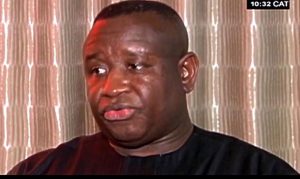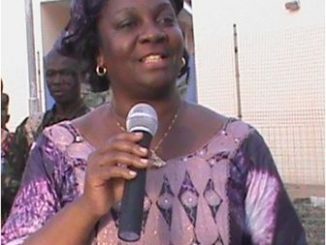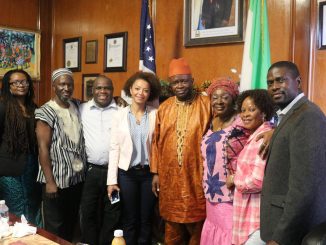
*By The Mental Revolutionary*
The Sierra Leone People’s Party (SLPP) has not merely governed Sierra Leone—it has weaponised tribalism to fracture the nation’s soul, turning brother against brother, neighbor against neighbor, and tribe against tribe in a grotesque theater of division.
Under the guise of “one people ” and “one country,” the SLPP has perfected the art of ethnic manipulation, reducing a once-hopeful nation to a carcass picked clean by vultures in tailored suits. From the ashes of post-independence idealism, the party has built a fiefdom of exclusion, where loyalty to the Mende tribe trumps competence, justice, or national unity. The SLPP’s legacy is not one of governance but of calculated erosion—a slow, deliberate poisoning of Sierra Leone’s social fabric.
The roots of this rot trace back to the 1967 elections, when the SLPP, facing inevitable defeat, orchestrated a military coup to cling to power. Brigadier David Lansana, a loyalist of then-Prime Minister Albert Margai, declared martial law, plunging Freetown into chaos and setting a precedent for political violence . This was not an aberration but a blueprint: when democratic processes threatened SLPP dominance, the party resorted to coercion, intimidation, and tribal allegiances to maintain control. The seeds of today’s divisions were sown here, in the soil of desperation and entitlement, watered by the blood of those who dared to envision a Sierra Leone beyond tribal loyalties.
Under Maada Bio’s regime, tribalism has been elevated to statecraft. Key government positions—civil service, security, judiciary—are doled out not to the qualified but to the ethnically compliant. The Mende hegemony under Bio is so brazen that even the pretence of meritocracy has been discarded. Temne, Limba, and other ethnic groups are systematically excluded, relegated to the margins of a nation they, too, call home . This is not governance; it is apartheid by another name. The SLPP’s rhetoric of “development” rings hollow when hospitals crumble, schools starve for resources, and infrastructure rots—unless, of course, you belong to the “right” tribe.
The 2018 elections laid bare the SLPP’s playbook: tribal fearmongering as electoral strategy. Southern and eastern regions, predominantly Mende, were whipped into a frenzy of ethnic solidarity, while northerners—labeled “APC loyalists”—faced threats, arson, and expulsion. In Taiama Town, SLPP-aligned youths torched APC offices and drove northerners from their homes . In Pujehun, Limba and Temne traders were hounded out by landlords emboldened by the party’s toxic rhetoric . This is not democracy; it is ethnic cleansing lite, sanctioned by a government that trades in hate.
The SLPP’s tribal politics is not merely destructive—it is self-defeating. By alienating vast swathes of the population, the party has turned Sierra Leone into a pressure cooker of resentment. The brain drain, as skilled professionals flee a system that rewards connections over capability, is a national haemorrhage . Meanwhile, the youth—those not seduced by the SLPP’s empty promises—are left to simmer in disillusionment, their futures mortgaged to tribal patronage. The SLPP’s “victories” are Pyrrhic, won at the cost of national cohesion and progress.
Even the ghosts of Sierra Leone’s civil war whisper warnings. The Truth and Reconciliation Commission (TRC) identified tribalism and exclusion as catalysts for the conflict, yet the SLPP has resurrected these very demons . The police, once reformed into a “force for good,” now terrorise citizens under Bio’s watch, with massacres in Makeni, Tombo, and Lunsar serving as grim reminders of state-sanctioned brutality . The international community, ever complicit, showers Bio with accolades for “democracy” even as his regime jails critics and silences dissent .
The SLPP’s greatest crime is not its corruption or incompetence—it is the theft of Sierra Leone’s potential. A nation blessed with diamonds, rutile, and boundless human capital has been reduced to a cautionary tale, its people divided into “red” or “green,” “northwest ” or “southeast,” “Mende” or “Temne.” The SLPP did not create tribalism, but it has refined it into a weapon, sharpened by decades of cynicism. To them, Sierra Leone is not a nation to uplift but a carcass to carve—a spoils system where ethnicity dictates who eats and who starves.
The tragedy is not that the SLPP thrives on division—it is that Sierra Leoneans have been gaslit into believing no alternative exists. Yet, as the cracks widen and the rhetoric grows more venomous, one truth remains: a house divided cannot stand. The SLPP’s tribalist edifice will collapse, as all such structures do, under the weight of its own contradictions. The question is whether Sierra Leone will survive the rubble.
*Aluta Continua ✊🏿 🇸🇱*




Leave a Reply